
As I help families go through their homes and really clean up their space, one of the BIGGEST areas of change and improvement is usually in swapping out cleaning products. The most important factor that comes into play when we talk about cleaning products is (1) avoiding toxins and health harming chemicals in our cleaners, and (2) choosing the best cleaning products that will work for our family.
It may sound easy enough, right? But to be honest with you MANY people who are somewhat aware of toxins THINK they are choosing the best cleaning products for their home based on the labels. I’m here to tell you that it gets MUCH more complex and complicated than trusting a label on a product. WHY? Greenwashing.
What may appear like the best cleaning products based on some of the key words put on the label can actually turn out to be the WORST products for your health. This is why I help families choose healthy products — it can be impossible to know how to find the best cleaning products that truly are healthy for you and your family.
This week’s blog post will walk you through the BIG no-no ingredients you want to avoid in your cleaners and then I’m going to share with you some of the greenwashed brands and terms you should REALLY avoid.
But the good news is that I’m also sharing with you the best cleaning products that I trust and share with my clients so you can make a healthier choice in your home too. You don’t have to go into choosing products blind and go by the packaging. I’m going to help you do a complete ditch and switch of your cleaning products and get your healthy home cleaned up!
THE INGREDIENTS YOU WANT TO AVOID
Synthetic Fragrance: Added to many products but are not required to be disclosed on the package. Often made up of phthalates, benzene and toluene chemicals.
Found in: Fabric Softeners, Laundry Detergents, Air Fresheners, Cleaning Sprays of all varieties
Health Risks: Problems from the phthalates include hormone disruption which can affect the thyroid, and reproductive system. Benzene and Toluene are also carcinogenic in nature.
Bleach: Bleach is a powerful, man made toxin that is extremely corrosive to our bodies and homes.
Found in: Laundry products, tub and tile sprays, toilet cleaners
Health Risks: Bleach is extremely harmful to the lungs and once in aerosol form it can trigger asthma attacks and spur on allergy like symptoms. Also causes irritation to the skin and eyes (Study)
Ammonia: This chemical is colorless and has a strong chemical smell. It is extremely corrosive
Found in: Glass cleaners, furniture polishes, drain cleaners, oven cleaners and bathroom cleaners
Health Risks: Ammonia has similar effects on our health as bleach and can cause damage to the lungs and skin when exposed. In some cases this damage is irreversible. (STUDY)
Toluene: Toluene is used to dissolve other substances and is water insoluble, making it a good polish and cleaning agent.
Found in: Multipurpose cleaners, polishes for floors and furniture
Health Risks: Considered a neurotoxin this toxin affects the central nervous system and can disrupt sleep, brain development and behavior. It can also negatively affect the liver and kidney, leaving them damaged. (STUDY)
1,4-dioxane: Used as a primary solvent in different types of detergents and is a surfactant, which helps suds and clean when used with water.
Found in: Laundry detergents and soaps
Health Risks: Can cause kidney and liver damage (STUDY) It is also harmful to unborn babies when pregnant mothers have constant exposure (STUDY)
Quaternary Ammonium Compounds: Used to kill types of bacteria, viruses and molds it is in many cleaning product agents that claim to sanitize.
Found in: Cleaners, sanitizers and disinfectants
Health Risks: Triggers asthma, causes skin irritation and rashes. Also affects the reproductive system and can complicate pregnancies. (STUDY)
2-Butoxyethanol: Found in many cleaners it is flammable and a solvent. It helps to disperse dirt and grime to remove them without the need for scrubbing.
Found in: Liquid soaps, degreasers and cleaning sprays.
Health Risks: Affects the kidneys and liver, damaging them. It has also been associated with neurological effects and reproductive disorders. (STUDY)

TOP CLEANING OFFENDERS (AND BEST CLEANING PRODUCTS TO SWAP)
Magic Erasers: Made of melamine, which contains formaldehyde, which is a known carcinogen and should be avoided completely if possible. You’re better off using a natural scrubber and some baking soda.
Dryer Sheets: Dryer sheets leave residue on your clothing and eventually on your skin. They contain quaternary ammonium compounds and often synthetic fragrances. Go for wool dryer balls with organic essential oils added as a substitute.
Dawn Dish Soap: Even the “Pure Essentials” dish soap should be avoided. This dish detergent contains fragrance, surfactants and solvents that are harmful to both your endocrine system as well as your kidney and liver. You can find healthy, toxin free dish soaps on the Think Dirty App
Air Fresheners: ANYTHING that contains a synthetic fragrance from air fresheners to deodorizing sprays should be avoided. These often contain a group of chemicals and toxins that make up the scent you’re smelling. Opt for certified organic essential oils instead in a glass diffuser.
Disinfectants: MOST of the disinfectants that are out there contain things like bleach and ammonia to do the disinfecting. Be sure to do your research BEFORE you buy products like reading this post all about natural disinfectants to help you find the best cleaning products.
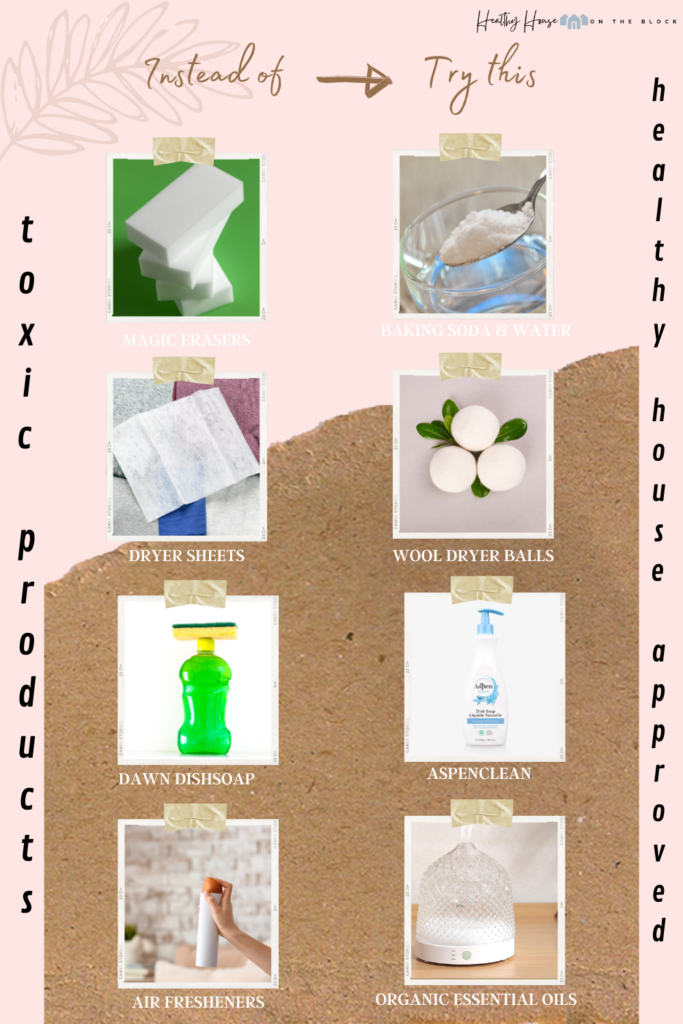
GREENWASHED BRANDS & WORDS
Don’t be fooled as you try to search for the best cleaning products for your health and home. Many of the terms that end up on labels and packaging are not fact checked or regulated. This means they can be added to any product and what they mean in terms of “health” could be just about anything. Even the names of some brands include the words “green” or “free” — these too are completely meaningless when it comes to the actual safety and health of the product.
Below are some of the top offenders in brands and the words you want to steer clear of.
- Green Works
- Simple Green
- Tide Free & Gentle
- The Good Home Co.
- Downy Ultra Pure
- Dawn Pure Essentials
- Just the Basics
- The Good Home Co
Greenwashing Terms:
- Eco-Friendly
- Natural
- Pure
- Green
- Free & Clear
- Fragrance Free
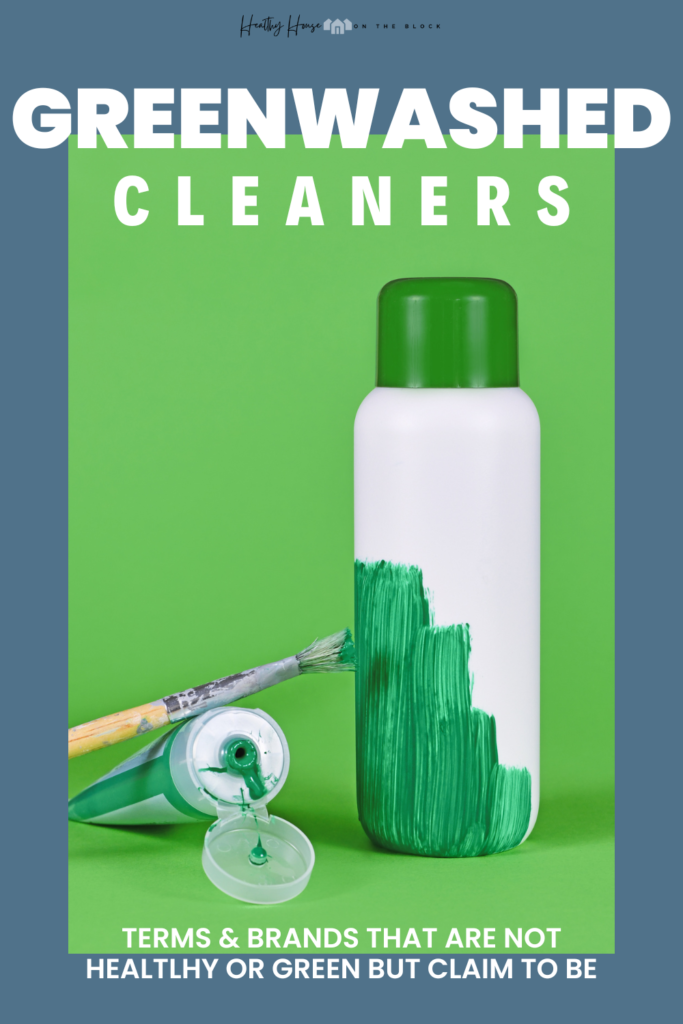
HEALTHY & BEST CLEANING PRODUCTS
All of my recommended cleaning swaps are now found in my new course:
The Healthy Home Blueprint
- Multipurpose Cleaner: Aspen Clean
- Floor Cleaner: Aspen Clean
- Scrubber: Baking Soda & Water made into a paste OR Bon Ami
- Whitener: Hydrogen Peroxide
- Stain Remover: Rubbing Alcohol
- Dish Soap: Blueland
- Dishwasher Tabs: Molly’s Suds
- Laundry Detergent: Molly’s Suds
- Laundry Whitener: Bluing Concentrate
- Handsoap: Thick Castile Soap
- Window Cleaner: Window Cleaning Cloth
HOW TO DO A DITCH & SWITCH FOR THE BEST CLEANING PRODUCTS
This post about using a third party app to swap out your cleaners and cleaning supplies is the BEST way I know how to do a complete ditch and switch of your cleaning products.
You can also check out this extensive post about toxin free cleaners with options to make your own if you felt like it.
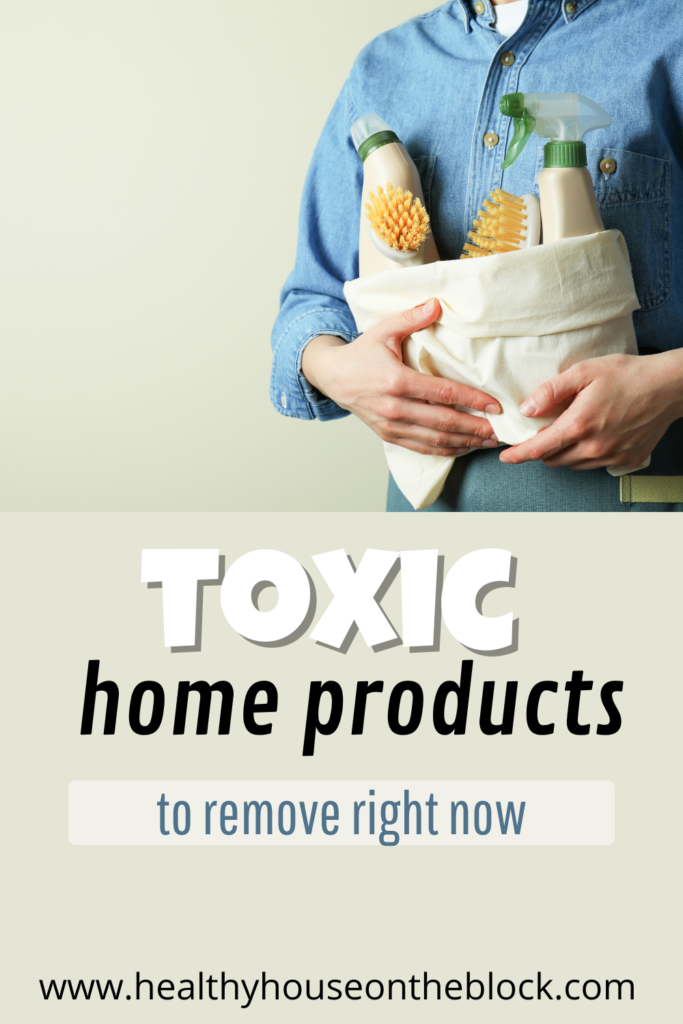

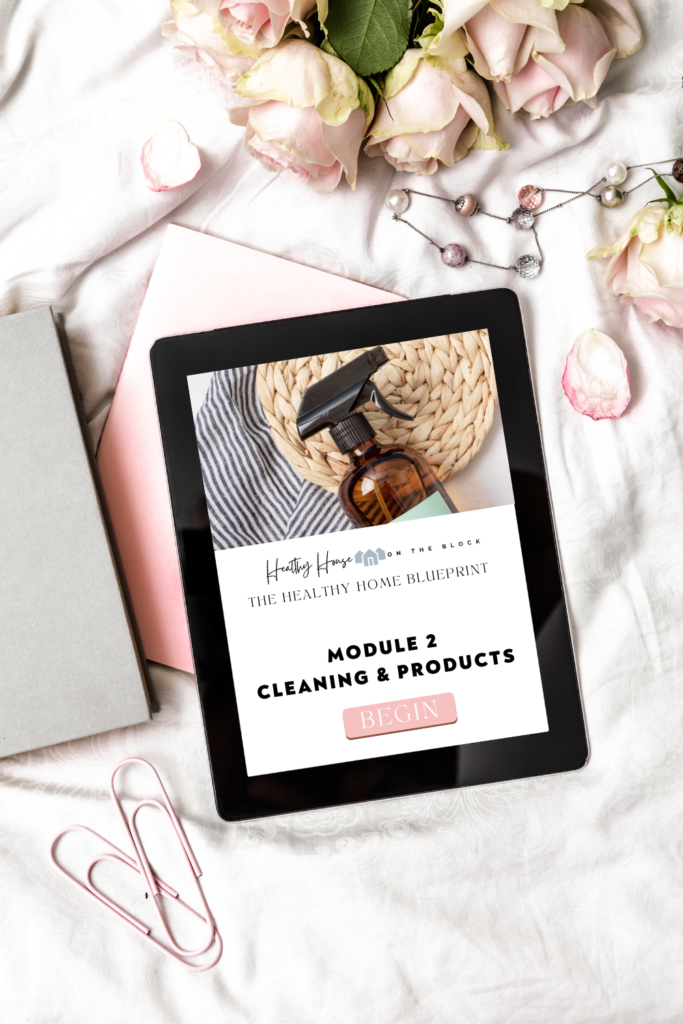
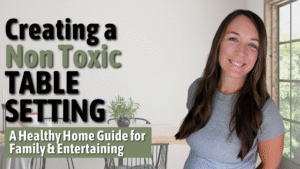
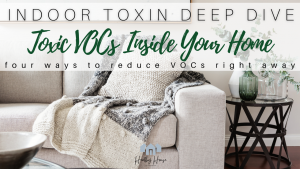
Pingback: Preparing a House for the Winter Season: Non Toxic House Detox Plan - Healthy House on the Block
Pingback: 8 Ways to Transform Your Healthy Home & Support Your Health